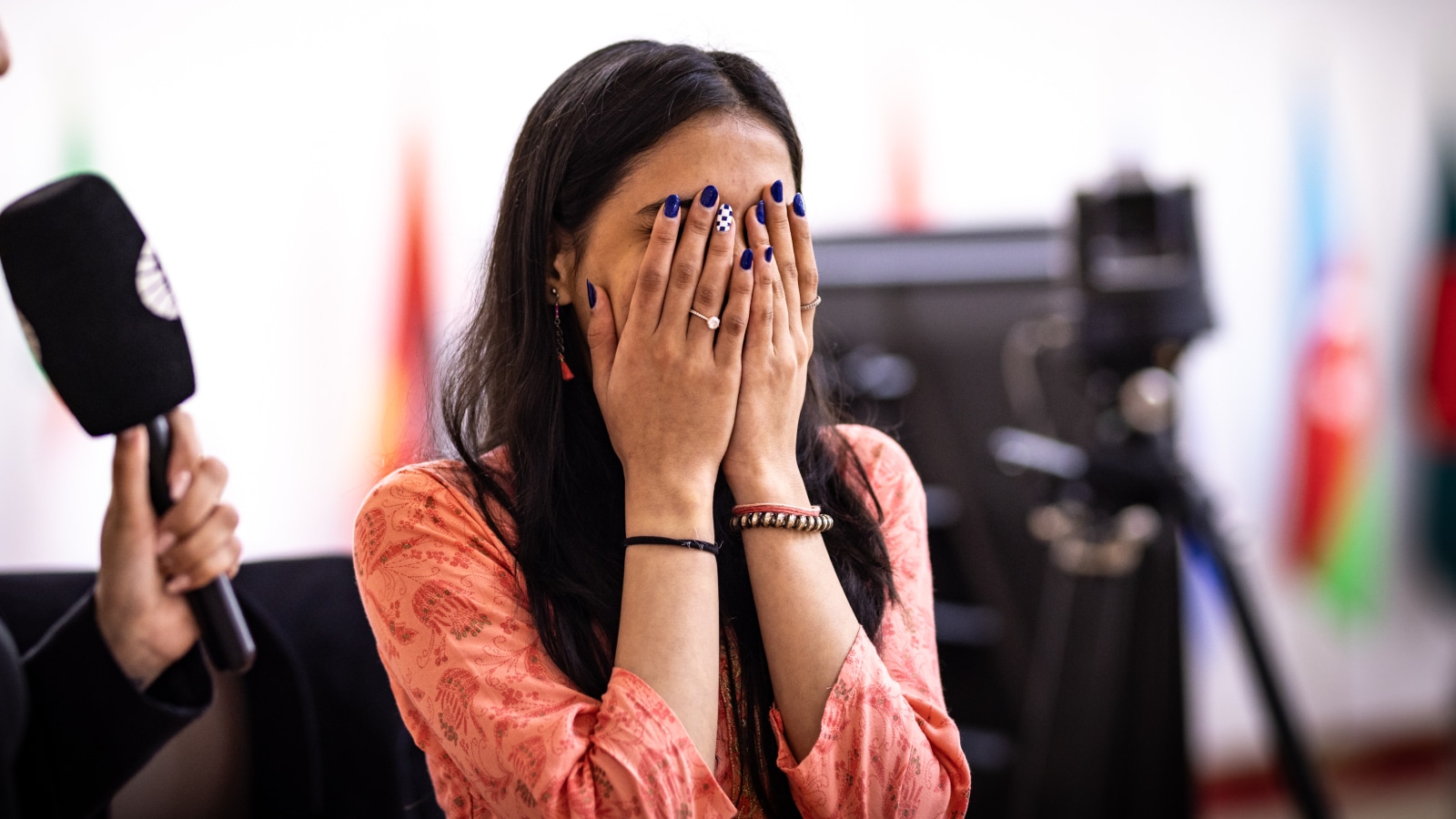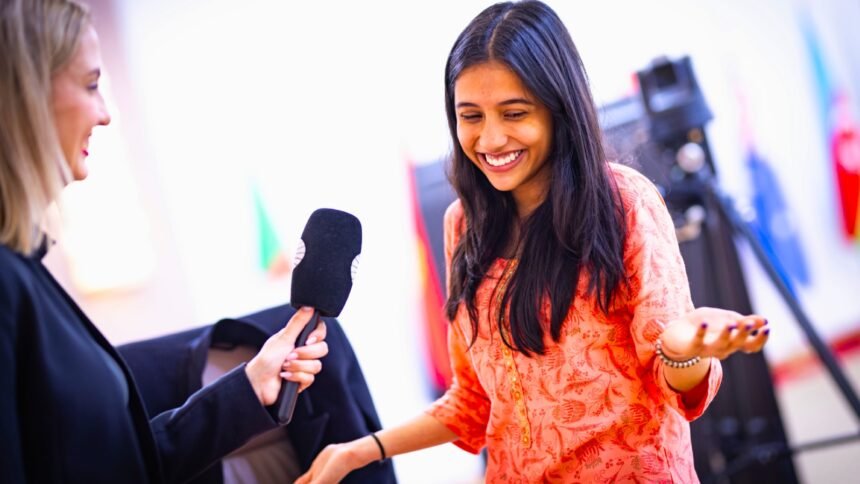It’s been a barnstorming campaign in Batumi for the 19-year-old Divya Deshmukh, who became the first-ever Indian player to enter the FIDE Women’s World Cup final in the Georgian city on Wednesday after defeating Tan Zhongyi, a former women’s world champion. 102 other players started the FIDE Women’s World Cup hoping to be in the position Divya finds herself today: a finalist which also ensures she gets a spot at the FIDE Women’s Candidates Tournament. The win over China’s Tan also ensures Divya seals the first of the three norms needed to become India’s only fourth woman to be a grandmaster.
Divya’s challenger in the final will be decided on Thursday, when the veteran Koneru Humpy and China’s Lei Tingjie fight in the tiebreaks, which means there could be an India vs India fight for the title. The win over Tan Zhongyi was particularly memorable for the girl from Nagpur: after ending the first game with a quick draw, Divya and Tan duelled for over five hours, making just over 100 moves each to emerge triumphant. Tan has been a women’s world champion as late as 2018 and just earlier this year was fighting in the women’s world chess championship to reclaim the crown.
“What’s the fun of going into the final the easy way? Wouldn’t be me if it wasn’t dramatic,” Divya wrote on her social media after the win over Tan.
Remarkably, while her opponent was fighting for the greatest title of all in women’s chess this year, it was only in June last year that Divya became the world junior champion. It’s taken her 13 months to find herself on the cusp of winning one of the most treacherous tournaments in chess. Divya’s run to the final can only be compared to the one that Praggnanandhaa made in 2023 at the FIDE World Cup as an 18-year-old, defeating players like Arjun Erigaisi, World No.3 Fabiano Caruana and World No.2 Hikaru Nakamura before losing the final to Magnus Carlsen. Just like Pragg’s 2023 moment, at the ongoing World Cup, Divya had dispatched Serbian IM Teodora Injac, world No.6 from China Zhu Jiner, veteran Indian grandmaster Dronavalli Harika before beating a former women’s world champion.
“This is a huge achievement. The fact that she beat players like Zhu Jiner, Tan Zhongyi and Harika is quite impressive. She’s someone who has a lot of potential, so I wouldn’t say this is unexpected. But people were waiting for this and it’s nice that she’s delivered,” five-time world champion Viswanathan Anand told The Indian Express.
“Personally, this represents a breakthrough. Because her results at the FIDE Women’s Grand Prix events (which she played recently) weren’t at this level. This will be a huge boost to her confidence,” added Anand. Divya has attended multiple sessions at Anand’s Westbridge Anand Chess Academy (WACA) to sharpen her game play.
As late as 2023, Divya wasn’t even certain she wanted to pursue chess full-time. Divya had told The Indian Express in an interaction after winning the title at the Tata Steel Chess India’s rapid tournament in Kolkata, that she was ‘still exploring’ if she wants to continue playing chess full time or focus on further studies.
“A lot fascinates me. I’m not sure which field to choose,” she had said then.
Story continues below this ad
 India’s Divya Deshmukh emotional after reaching FIDE Women’s World Cup final. (FIDE/Anna Shtourman)
India’s Divya Deshmukh emotional after reaching FIDE Women’s World Cup final. (FIDE/Anna Shtourman)
Accidental chess player
Divya’s tryst with chess started almost accidentally.
As the teenager had recounted in 2023: “I started playing the sport accidentally. My sister used to go to badminton classes, one day my parents took me as well. But I was just four or five years old then, and I didn’t even reach the badminton net. There was a chess class happening in the same building, so my parents took me there. I liked the sport. Then, I just stuck with chess.”
While her elder sister stopped playing badminton a while back, Divya’s conquests on the board have brought her closer to becoming the fourth Indian woman to become a grandmaster.
Ask grandmaster Abhijit Kunte, who has seen Divya’s rise from close quarters, what her best attributes are, and he says: “She has always been very brave, someone never afraid to experiment.”
Story continues below this ad
But Kunte points out that she didn’t have too much exposure to elite top-level chess before this year, when she played in multiple events of the FIDE Women’s Grand Prix.
Anand, meanwhile, praises Divya for her penchant for attacking chess. “She does lean (towards) aggressive (chess). But that seems to be the general trend in women’s chess these days,” he said.
Kunte, on the other hand, is impressed by Divya’s maturity at the age of 19. After the first game with Tan ended in a draw, Divya was almost disappointed with herself, even though she had held one of the strongest players in women’s chess to a draw with black pieces. Then after the 101-move rollercoaster in the second game which saw her beat Tan, Divya was again thinking of ways she could have done better.
“I could have played much better. I was winning at one point, then I messed up in the middle game. I should have had a much smoother win,” Divya admitted in an interview right after the win.
Story continues below this ad
“This kind of maturity at 19 is not easy to get. It’s very rare in women’s chess,” Kunte had said.








